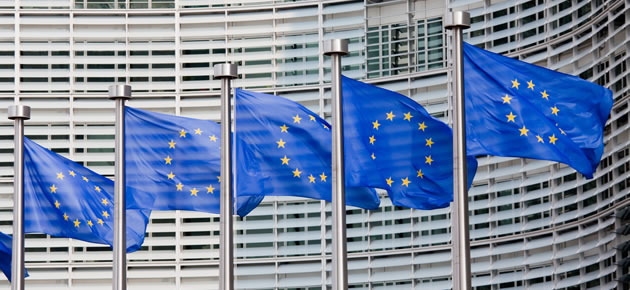The Euro exchange rate weakened against the majority of its most traded peers on Friday as investors ditched the currency as they went in search of better yields elsewhere.
Yesterday saw the European Central Bank cut interest rates to a new record low level of 0.15% and introduce a negative deposit rate. Those measures sent the currency tumbling as investors turned their attention to the worlds riskier and more importantly, higher yielding currencies.
Currencies such as the Australian, New Zealand and Canadian Dollars all rose as investors moved cash to the higher yielding commodity based currencies. The South African Rand also made an upward movement.
“Imagine you’re a European bank. You’ve got lots of money on your balance sheet, what do you do with that money? You start looking around the world for liquid, triple-A, safe, relatively high yield. The Australian Dollar is not too far away from that thought process,” said Westpac’s chief currency strategist Robert Rennie.
The higher yielding currencies are likely to continue to find support throughout the session as yesterday’s ECB policy decision continues to be digested by the markets.
“If you have a central bank that’s moving toward more easing like the ECB it just gives another green light toward the high-yield market,” said Jane Foley, a senior currency strategist at Rabobank. “If we look back at what huge amounts of easing from various central banks have done in recent years it has promoted asset-price inflation and confidence into high-yield markets.”
The Euro came under pressure earlier today after data showed that the German economy, (the Eurozone’s largest), will slow in the second quarter.
According to the German economy ministry, industrial output in the country expanded only slightly in April after being weighed down by a fall in construction activity. Despite the fall in activity the Bundesbank increased its growth forecasts for the year ahead.
It now expects the German economy to expand by 1.9% this year instead of its previous forecast of 1.7%. The bank left its growth forecast unchanged at 2% for next year and expects to see a growth rate of 1.6% in 2016.
“Germany’s strengthened domestic economy as well as the ongoing improvement in the economic situation of the industrial countries and the gradual recovery of the euro area suggests that Germany will follow a robust growth path,” Bundesbank president Jen Weidmann said in a statement.
The Pound meanwhile saw further gains limited by a report which showed that the UK’s trade deficit widened more than expected in April. The nation’s trade gap widened to £8.92 billion from the previous months figure of £8.29 billion.
The Euro is expected to remain under pressure for the rest of the session as market attention turns to the release of US nonfarm payrolls data due later in the session. The data is forecast to show that the US jobs sector is strengthening.
If the data disappoints then we can expect to see the US currency give up some of its gains against the Euro and fall further against the Pound.
Euro Exchange Rate News:
[table width=”100%” colwidth=”50|50|50|50|50″ colalign=”left|left|left|left|left”]
Currency, ,Currency,Rate ,
Euro, ,US Dollar,1.3624 ,
,US Dollar,1.3624 ,
Euro, ,British Pound,0.8104 ,
,British Pound,0.8104 ,
Euro, ,Australian Dollar,1.4575 ,
,Australian Dollar,1.4575 ,
Euro, ,Canadian Dollar,1.4884 ,
,Canadian Dollar,1.4884 ,
[/table]



